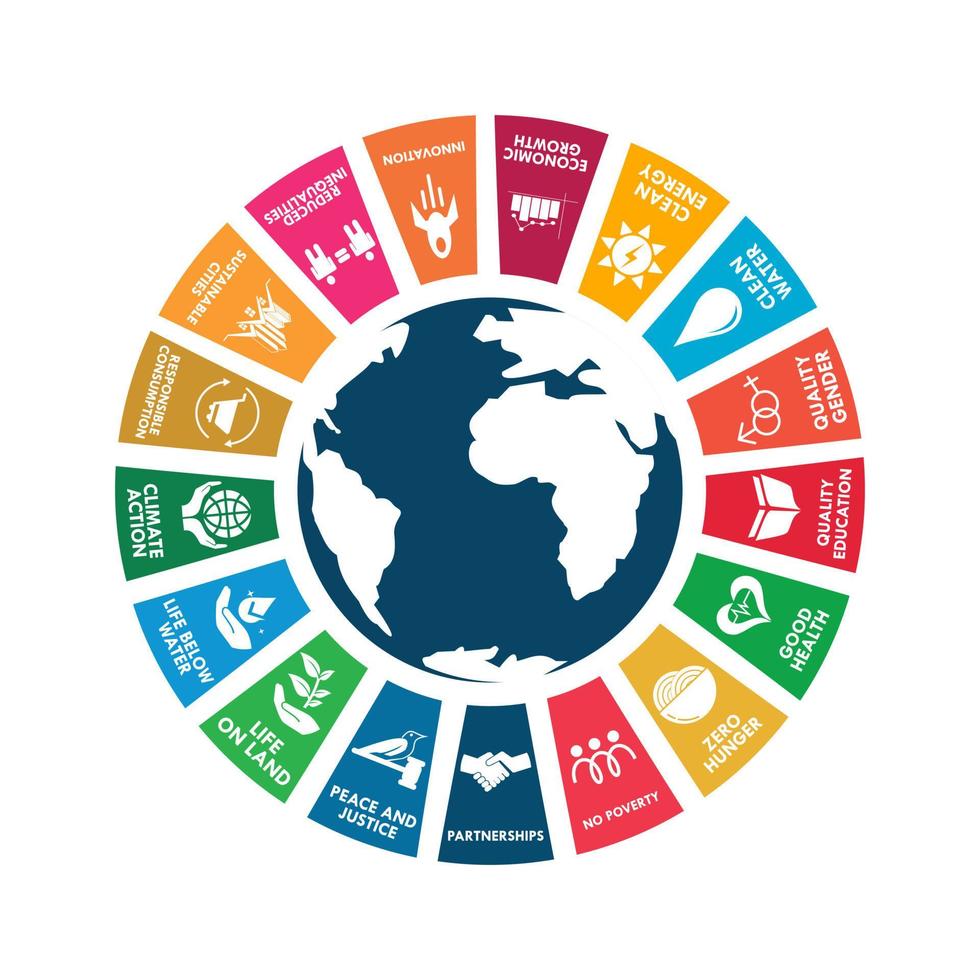Education for Sustainable Development
The Sustainable Development Goals, also known as the Global Goals, are part of the 2030 Agenda and aim to balance social advancement, environmental sustainability, and economic growth, giving everyone the chance to live better lives without endangering the environment.
It is obvious that human activity has an impact on the climate to meet these needs. It is a proven reality that our actions have an impact on the world both locally and globally.
The shift from the current civilization to one that is more environmentally friendly is represented by sustainable development. Sustainable development goals are intended to maintain a commitment and balance between economic growth, environmental preservation, and social well-being as the globe faces a potential climatic crisis, which might result in water shortages, droughts, starvation, and harsh weather.How can we help?
By calculating our individual carbon footprint, we can start the process of bringing about sustainable growth. And the key to starting change is in the classrooms. Values, routines, and traditions that transcend the classroom are taught in schools. It is possible to learn about many climate change mitigation strategies at schools, such as the use of renewable energy, the construction of smart buildings, gardens, lighting systems, and water management.
Individual activities are required to sustain and enhance the quality of life in communities, even when the contributions of a particular region or school may seem tiny in comparison to the larger issue. Unfortunately, it took us a long time to understand that inaction has a bad impact on us. Our planet’s ability to sustain itself is in danger.
This training aims to equip the educators with the tools and knowledge on how to incorporate sustainable development in education. Making the shift in education towards valuing sustainability is essential in terms of raising generations that will take actions and be the driving force for environmental integrity, economic viability with respect to cultural diversity. The course will enable participants to address present and future global challenges constructively and creatively and to create more sustainable and resilient communities.
TARGET GROUP
This training is intended for teachers, educators and administrative staff of schools, adult education centres, VET centres and Higher Education Institutions.
METHODOLOGY
Daily motivational activities, self-improvement, group and pair work, simulations, and networking will all be a part of the training (course) methodology in addition to classroom and outdoor activities. The process will change every teacher into an empowered version of themselves as an environmental agent who cares about the growth of their students as well as how to build a more just and equitable society.
Lectures, seminars, and workshops will be included in the training (course) to provide thorough understanding and daily assignment support. Additionally, participants will work and receive a guide to implement this topic or just to enjoy themselves with their students by engaging in indoor and outdoor activities. At the conclusion of the course, we will give each participant an attendance certificate that includes specific details about the course, such as the title, curriculum, and timetable. A Europass Mobility Certificate may also be included upon request.
TRAINING CONTENT
The following Agenda will be followed during a five full day training program:
DAY 1
-Getting to know each other & participants’ educational institutions
-2030 Agenda for Sustainable Development and its 17 Sustainable Development Goals
-Why do the SDGs matter to educational institutions and teachers?
-Needs analysis and goal setting for educational institutions
DAY 2
-Introduction to Education for Sustainable Development (ESD)
-4 pillars of Education for Sustainable Development (ESD)
-Environmental sustainability
-Economic Sustainability
-Social Sustainability
-How ESD is implemented in educational organisations (case studies)?
-Focusing on teaching Environmental sustainability
-Workshops on how to teach environmental sustainability
DAY 3
-Focusing on teaching Economic and Social sustainability
-Workshops on how to teach Economic and Social sustainability
-Educators tools – where to find educational resources (apps, videos, lessons & workshop plans, etc.?
-How to start a sustainability project in my school?
DAY 4
-Whole-School Sustainability – what sustainable schools look like
-Key Challenges of transforming schools
-Role of networks and stakeholders in implementing & promoting sustainability
-How do I implement sustainable development in my organisation? – making an action plan for sustainable development in participants’ organisations
DAY 5
-Summary and course evaluation
-Feedback & certificates
-Cultural excursion in the local area
COMPETENCES ACQUIRED BY PARTICIPANTS
The training/course aims to develop participants’ awareness and creativity in designing lessons, workshops and projects to promote sustainable development in their organisations and the whole community.
Specific objectives of the training are:
- Introduce 2030 Agenda for Sustainable Development, its 17 Sustainable Development Goals and Education for Sustainable Development (ESD)
- Show the importance of Education for Sustainable Development (ESD) to educational institutions and teachers
- Show participants how to design workshops to teach sustainability
- Show participants how to design their own sustainability projects
- Promote healthy systems in the school’s physical place
- Improve the participants’ personal and professional skills in teaching
- Promote more interactive, caring and horizontal relationship between educators and students
- Show the importance of networks and stakeholders’ involvement in the implementation and promotion of sustainable development
- Enhance the participant’s ability to adapt to changes
- Create a cross-cultural environment to discuss and exchange ideas with colleagues
- Provide tools of professional development for the educators
- Increase capacity to cooperate on an international level
- Improve communication and social skills
- Improve English language skills
TYPE OF CERTIFICATION OF ATTENDANCE AWARDED
- Certificate of attendance including description of training content and time input
- Certificate of Obtained Competencies
- Europass mobility certificates

